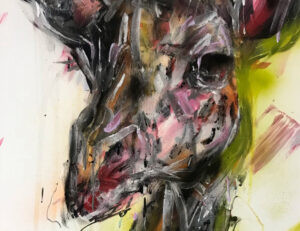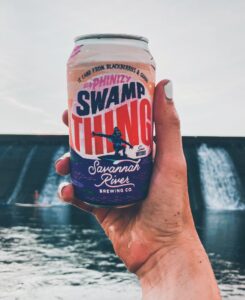It is that time of the year, when bell ringers ring and shop hoppers hop, and little book elves dance down old Laurens Street, bringing their latest wares to the expectant townsfolk. What is a book elf, you ask? A book elf is the greatest of scholarly elf, toting an advanced degree from the most prestigious of Elf Universities, who, after his or her book elf skills in a number of remote libraries across North Pole, is tasked with the important job of bringing to us the vintage, leather-bound, gilt decorated, finely illustrated, and all around special editions of your favorite stories.
Now in this expose we focus on perhaps the most important specialist in the whole book elf community—the children’s book specialist. Blessed with a youthful soul, this he-elf or she-elf is responsible for the production and distribution of significant editions of the stories that touch us the deepest, which we read while growing up, and which even today stir intense emotions in our subconscious when we read them. And the children’s book elf understands a little known fact, that many of these stories are Christmas stories, and that we find them especially striking this time of year, while seated next to our trees, hot cider in hand, with the twinkling of a bell heard in the distance. These stories, told through the generations from father to son, grandmother to granddaughter, reflect an oral tradition diligently recorded by the book elves, always nearby this time of year, studiously taking notes. The book elves were there when Dr. Seuss wrote his How The Grinch Stole Christmas, which to this day stirs our souls. We watch the films, we sing the songs, and we celebrate at the Grinch’s transformation and redemption, feeling at that moment that Christmas might indeed mean “a little bit more.”
The book elves were there, bespectacled and wearing tweed suits, when Charles Dickens, observer of a tumultuous industrial era, when machines tore apart the pastoral world of yore and modernity was born, when Dickens, out of this mess managed his little ghost story of Christmas which lives closest in the very heart of his nation—A Christmas Carol. Christmas, he says, will make everything all right. Christmas, he says, may mean a little bit more—it may not even have to come from a store!
In the States, though, one of the great Christmas stories did actually come from a store. The elves watched, wearing pants suits and nametags for Montgomery Ward, when, in 1939, Robert L. Way wrote a little story called Rudolph the Red Nosed Reindeer as a promotional giveaway for that famous store. 1939 alone saw distribution of 2.5 million copies of the story, made immortal by the 1949 Johnny Marks song about Rudolph and that nose.
And there are so many others — stories with obvious and not so obvious connections to this time of year — Alice in Wonderland, Paddington the Bear, and It’s a Wonderful Life, just to name a few. Sadly, that’s all we have time for—but on these brisk winter afternoons, do keep an eye out for the elves whisking their way down Laurens, and perhaps you will find one of their stories, placed in a window just for you.
























